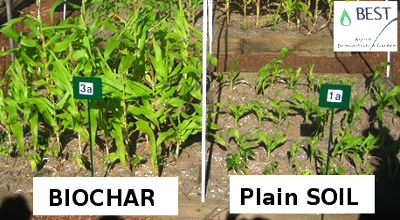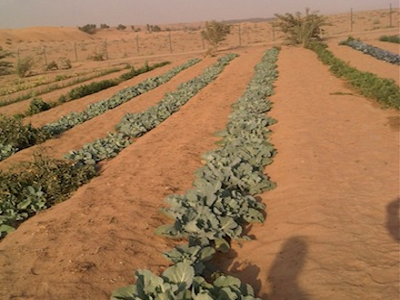How to use Biochar?

How to use Biochar?
Biochar improves not-so-good soils more than
very-good soils. It improves the retention of
water and minerals - reducing leaching, algal
blooms, toxins, and loss of fertilizer.
Sand or Clay?
In Sand, biochar retains water and required
minerals available at plant's roots, as in drip
farming operations growing crops in sand dunes.
In Clay, biochar provides structure to allow water to penetrate and remain in such soils, and avoids mineral loss due to runoffs.
In all cases, biochar is like a coral reef, that also provides space for beneficial microorganisms (bacteria, fungi) improving plant health.

Minerals
It is best to "pre-load" your biochar before mixing
into the soil so that it is offering minerals rather
than taking from the soil. Compost and manure are
some of the favorites.
Compost
When composting make sure to separate each layer
with layers of biochar so that compost juices do
not escape and leach away.
Manure and Farms
Farmers dealing with smelly slurry ponds, or large
quantities of manure can use biochar to capture the
ammonia (turns into nitrates) the smell disappears.
Extra benefits of using biochar in litter of pork
and poultry is the much lower number of flies and
related diseases.
